If you think you know flashcards, think again. Host Kevin Patton outlines the learning science behind flashcards, then shows how they can go way beyond simple memorization in the first of a multipart series on the hidden powers of flashcards. Updates in gene therapy to grow brain cells and smelling without olfactory bulbs.
01:12 | Gene Therapy for Brain Cells
04:05 | Sponsored by HAPS
04:49 | Something Smells Odd
08:26 | Sponsored by AAA
08:45 | Introduction to Flashcards
21:03 | Sponsored by HAPI Online Graduate Program
21:45 | Beginning Intermediate Flashcards
34:31 | Staying Connected
04:05 | Sponsored by HAPS
04:49 | Something Smells Odd
08:26 | Sponsored by AAA
08:45 | Introduction to Flashcards
21:03 | Sponsored by HAPI Online Graduate Program
21:45 | Beginning Intermediate Flashcards
34:31 | Staying Connected
If you cannot see or activate the audio player click here.
Please take the anonymous survey: theAPprofessor.org/survey
Questions & Feedback: 1-833-LION-DEN (1-833-546-6336)
Memorization has gotten a bad rap recently. Lots of students, and even some educators, say that being able to reason is more important than knowing facts; and besides, why bother committing things to memory when you've got Google? My response to this - after I've finished inwardly groaning - is that of course reasoning is important, but that doesn't mean you shouldn't know facts as well. It's not like you have to choose between one or the other. Besides, facts give you a foundation on which to reason about things. (Stefanie Weisman)
Gene Therapy for Brain Cells
3 minutesUsing gene therapy techniques, biologists can insert the NeuroD1 gene into glial progenitor cells to form new neurons in damaged brains.
- Gene Therapy Shows Promise Repairing Brain Tissue Damaged by Stroke (blog post) my-ap.us/2P8OgvN
- A NeuroD1 AAV-Based Gene Therapy for Functional Brain Repair after Ischemic Injury through In Vivo Astrocyte-to-Neuron Conversion (journal article) my-ap.us/2YIyJGs
- In vivo direct reprogramming of reactive glial cells into functional neurons after brain injury and in an Alzheimer's disease model. (research article) my-ap.us/2P8lYBA
- Gene Therapy (tutorial from NIH National Human Genome Research Institute) my-ap.us/2sarwmd
- Polydendrocytes (NG2 cells): multifunctional cells with lineage plasticity (review article) my-ap.us/344SPM9
- Image: my-ap.us/2sarwmd (Courtesy: National Human Genome Research Institute)
- Related episodes mentioned in this segment:
Sponsored by HAPS
0.5 minuteThe Human Anatomy & Physiology Society (HAPS) is a sponsor of this podcast. You can help appreciate their support by clicking the link below and checking out the many resources and benefits found there. Don't forget the upcoming deadline for HAPS Awards! HINT: At the HAPS website, select the Resources tab (in the navigation ribbon under the logo) and click on Awards and Scholarships
Anatomy & Physiology Society
theAPprofessor.org/haps

Something Smells Odd
3.5 minutesIt turns out that some women, especially left-handed women, can smell okay (good olfactory reception) even when they are missing both olfactory bulbs. Really. Listen to find out more!
- Left-handed women's quirk over sense of smell (news item) https://my-ap.us/36kuhA8
- Human Olfaction without Apparent Olfactory Bulbs (journal article) https://my-ap.us/2sXntdh
- Related episode mentioned in this segment:
- Image: my-ap.us/38y9IlD (Patrick J. Lynch, medical illustrator. (labeled by was_a_bee))
Sponsored by AAA
0.5 minutesA searchable transcript for this episode, as well as the captioned audiogram of this episode, are sponsored by the American Association for Anatomy (AAA) at anatomy.org. Check out the new website!
Searchable transcript
Captioned audiogram

Introduction to Flashcards
12 minutesA recent blog post from learning scientist Pooja Agarwal about flashcards got me thinking about how underappreciated this powerful study tool is. So off we go on a multi-part series (spanning more than one episode) we could call "Flashcards Unleashed." In this segment, some basics:
- Language learning —There are 3,957 glossary entries in Kevin's 2-semester A&P textbook, but even trimming that down to 1,000 new terms, students have 35 new terms to master every week.
- Leitner System and PALS: Patton's Adaptation of the Leitner System
- Make flashcards more powerful with these 3 tips (blog post from the Retrieval Practice website) my-ap.us/2OZrWog
- Leitner System (Wikipedia) my-ap.us/2RqpatV
- PALS (described in Survival Guide for Anatomy & Physiology) lionden.com/tips-survival-guide.htm
- Related episode mentioned in this segment:
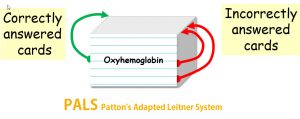
Sponsored by HAPI Online Graduate Program
0.5 minuteThe Master of Science in Human Anatomy & Physiology Instruction—the MS-HAPI—is a graduate program for A&P teachers. A combination of science courses (enough to qualify you to teach at the college level) and courses in contemporary instructional practice, this program helps you power up your teaching. Yep, this program is for those who already have advanced degrees. Kevin Patton is a faculty member in this program. Check it out!
nycc.edu/hapi
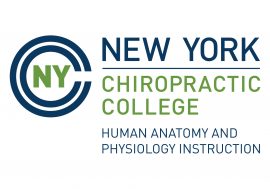
Beginning Intermediate Flashcards
12 minutesThe next phase of learning about the hidden power of flashcards. In this segment:
- Flashcards are just one tool in the A&P learning toolbox.
- We compare prepared cards and handmade cards.
- Kevin tells a story from the olden days (of course).
- Flashcard basics and the concept of a personalized wiki of A&P information.
- The role of pronunciation in learning new terms.
- Word parts in flashcards.
- Flashcard tips for students (Lion Den web page for A&P students, with a video, tips, links to sources, etc., that you can link to from inside your course) lionden.com/new_terms.htm
- There'll be more about flashcards in the next episode (Episode 59)!
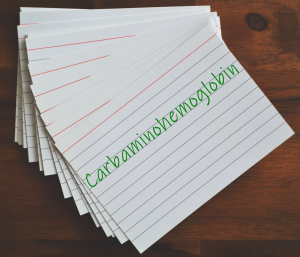
If the hyperlinks here are not active, go to TAPPradio.org to find the episode page.
- More details at the episode page.
- Transcript available at the script page.
- Listen to any episode on your Alexa device.
- Need help accessing resources locked behind a paywall? Check out this advice from Episode 32 to get what you need! https://youtu.be/JU_l76JGwVw?t=440
Tools & Resources
Sponsors
Transcript and captions for this episode
are supported by the
also provides marketing support for this podcast.
Distribution of this episode is supported by
NYCC's online graduate program in
Clicking on sponsor links
helps let them know you appreciate
their support of this podcast!
The A&P Professor® and Lion Den® are registered trademarks of Lion Den Inc. (Kevin Patton)
Click here to listen to this episode—or access the detailed notes and transcript.

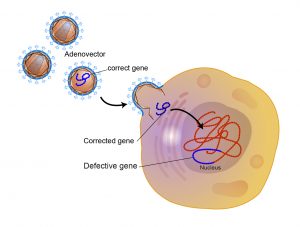
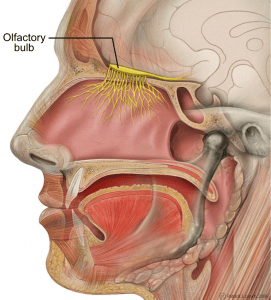
No comments:
Post a Comment